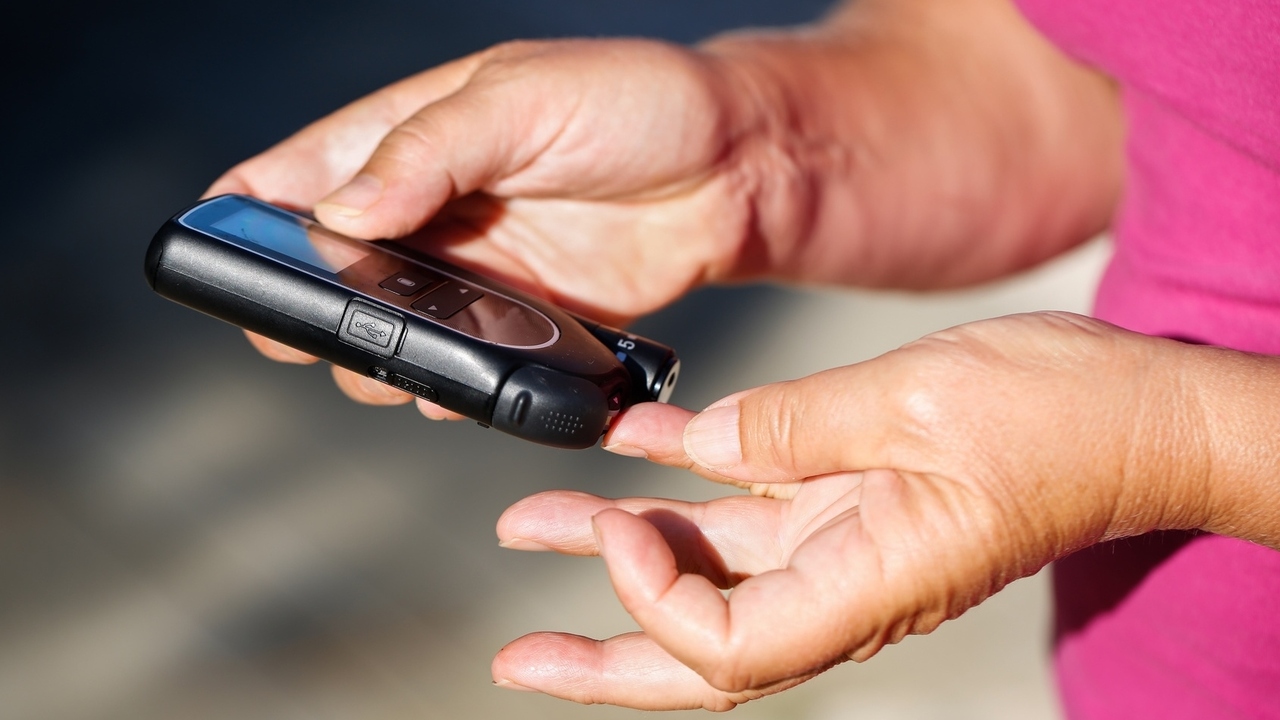 Photo: Getty Images
Photo: Getty Images
Diabetes presents special challenges during pregnancy. Dr. Dorte M. Jensen and colleagues in Denmark performed a study of complications in women with type 1 diabetes who need insulin injections to control their blood sugar. The lab test for hemoglobin A1C is a measure of how successful the treatment is.
Jensen defined serious adverse outcomes as congenital malformation or death of the baby. The hemoglobin A1C blood test before conception was found to be a predictor of pregnancy complications as follows:
2. A1C between 6.5 and 6.9: serious adverse outcomes in 5.6 percent.
3. A1C between 6.9 and 8.8: serious adverse outcomes in 7.7 percent.
4. A1C between 8.9 and 10.3: serious adverse outcomes in 7.8 percent.
5. A1C greater than 10.4: serious adverse outcomes in 16.3 percent.
Jensen recommended that women achieve A1C values of less than 7 before trying to conceive.
Maintaining glycemic control throughout pregnancy and delivery is stressful, according to a Swedish study of the experiences of pregnant women with type 1 diabetes. Dr. Marie Berg and Dr. Carina Sparud-Lundin interviewed 23 diabetic women after delivery. They reported, “daily lives for women with type 1 diabetes were characterized by exaggerated feelings of responsibility and perceived demands from the child, as well as constant worry, self-blame and pressure to provide the child with the best conditions to enable being born healthy.”
One issue noted by Berg and Sparud-Lundin is that stringent efforts to prevent hyperglycemia (high blood sugar) increase the risk of severe hypoglycemia (low blood sugar). Women felt “ruled” by their glucose levels. In addition, pregnant diabetic women expressed strong feelings of isolation in their experiences. One of the subjects reported, “When I talk to my friends who also have children, they can complain a lot about having had troublesome pregnancies, and so on. Of course, that's how they feel, isn't it, but you're quite alone, aren't you . . . as a pregnant diabetic?”
Berg and Sparud-Lundin recommended better communication between health care providers and diabetic patients during pregnancy. They also suggested group meetings for pregnant diabetics either through websites or arranged by care providers.
References:
1. Jensen DM et al, “Peri-conceptional A1C and risk of adverse pregnancy outcome in 933 women with type 1 diabetes”, Diabetes Care 2009; 32: 1046. http://www.ncbi.nlm.nih.gov/pubmed/19265024
2. Berg M et al, “Experiences of professional support during pregnancy and childbirth – a qualitative study of women with type 1 diabetes”, BMC Pregnancy and Childbirth 2009; 9:27. http://www.ncbi.nlm.nih.gov/pubmed/19575789
Reviewed August 2, 2011
by Michele Blacksberg R.N.
Edited by Shannon Koehle
Linda Fugate is a scientist and writer in Austin, Texas. She has a Ph.D. in Physics and an M.S. in Macromolecular Science and Engineering. Her background includes academic and industrial research in materials science. She currently writes song lyrics and health articles.






Add a Comment2 Comments
This is why I chose to never have children. I was diagnosed with type 1 in 1980. My father had it as well, and there is a roughly 10% chance of passing on the genetic propensity for it if the father has it. The risk is smaller of passing it on for diabetic women, but given the demands of pregnancy, the fact that Type 1 and other autoimmune diseases run in my family and the complete lack of support for Type 1 mothers (even with their endocrinologist, who tend to treat Type 1 diabetics as if they are all five, no matter how old they are), I decided that forgoing motherhoood was for the best. I also didn't want to look at my son or daughter as they injected themselves with insulin and think 'I could have prevented this from happening." Now all I have to put up with are the jerks that tell me I'm 'selfish' for not having children, or that 'I'll be sorry when I'm old and I have no one to care for me". I'm a Type 1 diabetic - we're USED TO having to take care of ourselves 24/7, morons.
August 2, 2011 - 12:19pmThis Comment
I'm sorry, Anon! I'm sure the decision not to have children was very difficult for you and definitely not for anyone to pass judgement on. Contrary to what these people have said to you, I think choosing not to have children for medical reasons like yours is a rather unselfish thing to do. Continue to care for your health and don't let anyone tell you any differently.
Wishing you the best,
Rosa
August 2, 2011 - 1:10pmThis Comment